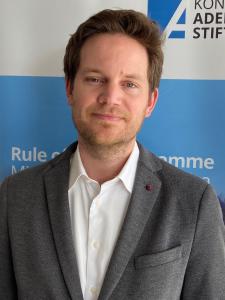The most common argument I receive from people that don’t intend to vote is that it won’t change anything anyway. This is false.
I realize, the electoral process might not always be encouraging, indeed, it may be laid out in such a way that it’s difficult for new figures and parties to enter parliament. Time and again the results may feel frustrating and it is well known that the political influence on the elections is massive.
However, another thing is also clear: Elections are the one democratic way to bring about change. Without elections it is guaranteed that things will remain the same. Whomever doesn’t vote cannot expect change and didn’t try to be a part of it. When voting is possible, not voting is a silent confirmation of the current situation. Further, with your vote you're confirming your will to be heard, you're showing that you believe in the power of the people.
The preamble of the Lebanese Constitution states under C) & D): “Lebanon is a parliamentary democratic republic based on respect for public liberties, especially the freedom of opinion and belief, and respect for social justice and equality of rights and duties among all citizens without discrimination. The people are the source of authority and sovereignty; they shall exercise these powers through the constitutional institutions.” Article 21 of the Lebanese Constitution says that “every Lebanese citizen who has completed his twenty-first year is an elector provided he fulfills the conditions stated by the electoral law”. Elections are the fundemental basis of every democratic country.
As Konrad-Adenauer-Stiftung Rule of Law Programme Middle East & North Africa we have worked together with Seeds for Legal Initiatives and LADE to help raise awareness about the elections, the way they work, what the requirements are – but also to answer the question: why should we vote?
- Click here to watch eight videos on the electoral process, that we worked on with SEEDS.
- Click here to watch three videos on why to vote and the necessity of an electoral program, that we worked on with LADE.
The above video reminds us, that voting is a national duty and a tool for accountability. It’s feedback for politicians and your way of being part of the decision how to move forward.
But ultimately, it’s so much more. It’s easy to pass on responsibility. Rarely in politics, it’s true, are we as single people responsible for the big political decisions. But there is always one day, where we have more say than usual, one day, where we can utter our discontent or admiration, one day, where we – altogether – decide who will lead us for the next few years, one day, where we can step up for change. That day is election day.
And that change won’t happen by itself, in fact, if you don’t vote, change will probably occur in the direction that you don’t want it to go. But with your voice, your vote: change is possible. Use that voice. You have more power than it might feel like - and every vote counts.
In 2018 under 50 % of registered voters turned up to vote. Had the other 50 % voted, surely, the results could and would have been entirely different.
As one my colleagues in the office put it: In so many ways Lebanon is worth the investment; this investment comes as a vote today.
And that is why it’s important to vote.
Go vote!
Follow the link to a comprehensive voter's guide published by our KAS Lebanon office: Konrad-Adenauer-Stiftung - Foundation Office Lebanon - Comprehensive Voter’s Guide (kas.de)
You also may find more information on the lebanese elections 2022 on the official site of the Lebanese Government: Elections 2022 - الرئيسية
Topics
Government Formation in Lithuania
South Africa's new government of national unity: progress or stagnation for the country?
Between scandals, election successes and court judgements – the AfD in 2024
Ghana has a "new old" president
The U.S. Elections and the End of Comfort for the Canadian Government



